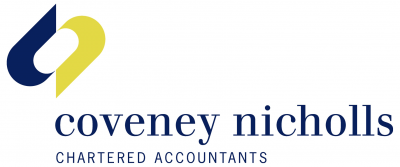When you fill out your tax return, you’ll want to make sure you claim as many allowable expenses as possible that have accrued throughout the year.
As a self-employed dentist, there are several things you can claim for which may not be apparent.
The team at Coveney Nicholls is here to ensure that you don’t miss out on claiming back your money from HMRC.
Here’s just some information you need to know.
Travel expenses
Claiming mileage back isn’t as straightforward for dentists as it is for others. If you have a temporary contract, then you’ll be able to claim back some mileage, but if you’re just commuting between your home and your practice, this won’t be tax-deductible.
If you work temporarily in another practice for more than two years and you spend less than half of your time there, any mileage can be claimed back. The same goes for travelling to a lab or visiting a patient.
If you work as part of a company, you’ll be able to claim any parking fees you’ve paid near your practice. Self-employed dentists won’t be able to do this unless they’re associated with a temporary place of work.
Essential costs
You’ll be glad to know that you can claim money back for your indemnity insurance, lab fees, and General Dental Council (GDC) fees.
If you’re self-employed, HMRC will allow you to claim back some money from your tax return, but only if your sole income is self-employed.
All your stationery equipment will be tax-deductible, as will any printing, dentistry equipment and protective clothing.
If you use your own phone or computer for your business, you’ll be able to claim money back on the minutes used for business purposes only and lower your phone and internet bill.
Training costs
As a qualified dentist, you can claim back tax on any continued professional development (CPD), which covers the cost of courses, travel and essentials while you’re away training. The same applies to travelling to another country – but only for training.
Tax breaks will not apply to new dentists or qualified dentists looking to train in a field unrelated to their industry.
Working from home
You can claim tax back on certain bills if you work from home instead of a dental office. You can include percentages of your lighting and heating bills, council tax and water bills in your tax return as an expense. You’ll also be able to look into capital allowances on your business equipment.
You must licence part of the house as a company when working from home. This means you’ll technically be renting, so you will have rental income on your tax return. The advantage of this will be that rental income is tax-deductible against your company profits, and there won’t be any National Insurance due.
This will make life easier as you can draw from your company profits, instead of making up your pay from salary and dividends.
Get in touch
If you need further guidance on what can and cannot be claimed as a business expense, then the team at Coveney Nicholls is here to help.

